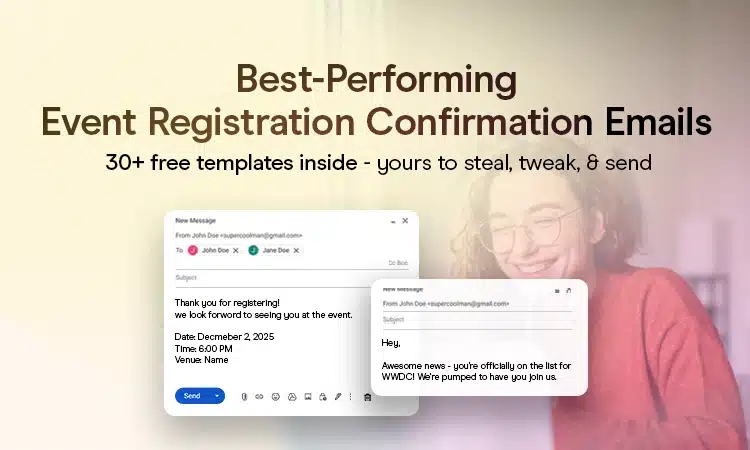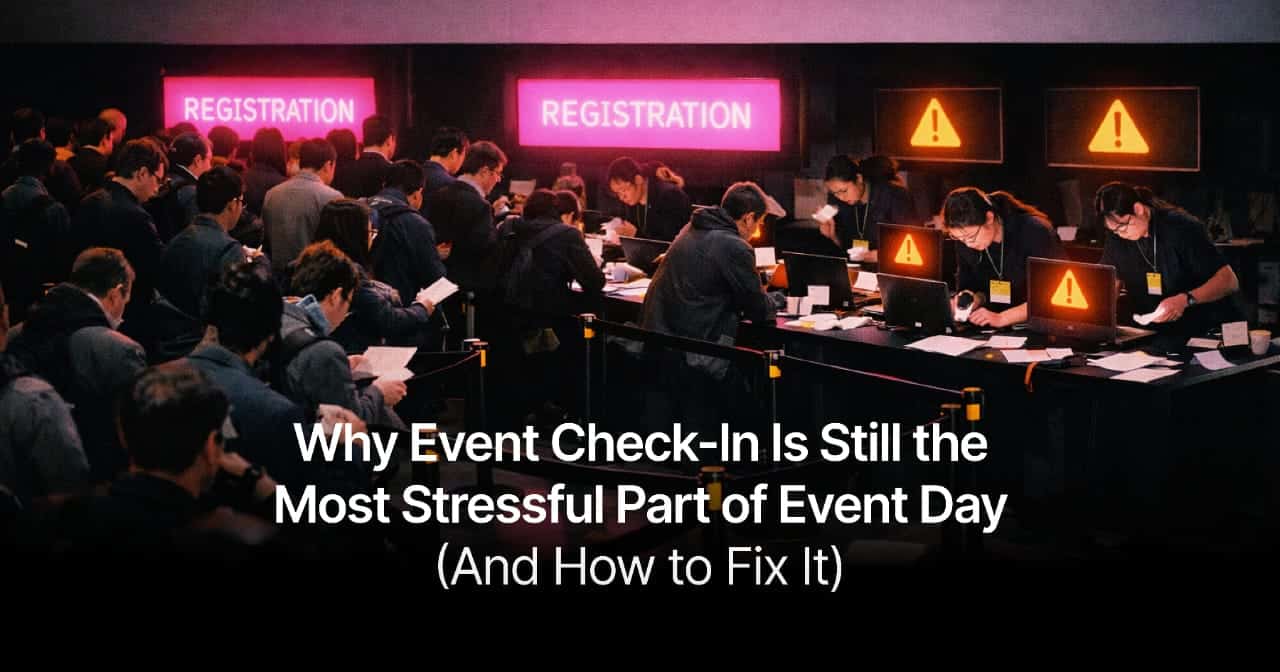You’ve ticked off the big items on your event checklist — landing page, registrations, speakers, reminders. Feels good, right?
But here’s a question that might sting a little:
What did your confirmation email say?
Chances are, it was something like:
“You’re registered. See you there.”
And that’s exactly the problem.
The Silent Saboteur: A Boring Event Confirmation Email Templates
Most event teams spend hours perfecting their invites, finessing their reminders, and fussing over follow-ups. But the confirmation email — the very first email attendees receive after registering — gets the least love.
Which is odd, considering it’s the one email that gets opened the most.
Studies show that transactional emails like confirmations can see open rates as high as 80%. That’s a window of attention you rarely get in marketing.
And yet, most event confirmation email templates feel like dull receipts. Generic. Robotic. Instantly forgettable.
But what if they did more?
The Real Job of a Confirmation Email
Done right, a confirmation email isn’t just a receipt. It’s your chance to:
✅ Reinforce their decision to attend
✅ Set expectations clearly
✅ Build anticipation
✅ Start engagement early
✅ Reduce last-minute drop-offs
It’s your first impression post-registration. It sets the tone for everything that follows.
Why This Matters (More Than You Think)
When event confirmation email templates feel cold or vague, they don’t just fizzle out — they quietly chip away at excitement. They leave attendees uncertain, disengaged, and more likely to flake out.
We’ve seen this over and over at events big and small:
No-shows creeping up. Attendees arriving confused. Last-minute questions flooding inboxes.
And 9 times out of 10, it traces back to one weak link — the confirmation email.
But Writing a Great One? Easier Said Than Done.
Every event is different. Every audience has its own tone. And no one has time to write a fresh, engaging email from scratch every single time.
So we made it easier.
👉 Get 30+ Event Confirmation Email Templates That Actually Work →
These plug-and-play templates are designed to:
- Boost open and click-through rates
- Reduce drop-offs
- Get attendees excited and prepared
And they cover all kinds of events — conferences, workshops, virtual sessions, networking nights — and all kinds of tones (from formal to fun).
But before you download the full kit, here are some free tips to help you start fixing your confirmation emails today.
5 Quick Fixes for Better Confirmation Emails
1. Make It Personal (Really Personal)
Don’t stop at “Hi [First Name].”
Reference how they signed up, what session might interest them, or if they’re a returning attendee.
“As someone in fintech, you might enjoy the startup showcase in Track B.”
2. Subject Lines That Actually Get Opened
Clear > Clever.
Try these instead of vague, robotic headers:
✅ “You’re registered for [Event Name]—here’s what’s next”
✅ “[First Name], your spot at [Event Name] is confirmed!”
✅ “Get ready—[Event Name] is around the corner”
Avoid:
❌ “Registration confirmation”
❌ “You’re all set”
❌ “Receipt for your registration”
3. Mobile Comes First
Most attendees will read your email on their phone.
✔ Single-column layout
✔ Big, tappable buttons
✔ Important info at the top
✔ Test on at least one device before sending
4. Add a Timeline
Set expectations right away. Give them a peek into what happens next.
“We’ll send you a prep checklist a week before, and the final agenda 2 days out.”
5. Use a Friendly Voice
Nobody’s expecting a novel—but a little warmth goes a long way.
“We’re excited to have you! You’ll get the full schedule soon, but for now, block your calendar and check your inbox in a few days.”
Want Templates That Do All This for You?
We’ve packaged all of this into a free guide with:
- 30+ high-converting email templates
- 100+ subject lines (coming soon!)
- Templates for workshops, conferences, virtual events, and more
- Different tones, styles, and formats
- Plug-and-play layouts you can tweak and send in minutes
Make your confirmation emails the part people remember — not the part you forgot.
P.S. Event confirmation emails might not be glamorous, but they’re one of your most powerful tools. Start using them like it.




